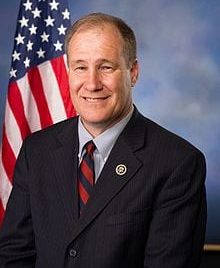
The Mississippi Legislature faced their first major action deadline on Tuesday, February 2. This deadline required general bills to be passed through committee in the originating chamber in order to move forward. Below are some of the bills that made it.
You can also check out our BILLS TO WATCH in order to stay up to date on what we believe will be some of the more talked about bills throughout the session.
HB 1303, which was authored by Rep. Scoggins, would allow for Advanced Practice Registered Nurses (APRNs) to provide independent care, that is without the oversight of a Medical Doctor. Currently, APRNs are required to give care under the authority of a licensed MD in the state. The allowance of a bill like this is hotly contested in the medical community with many physicians and nurses split on their opinion. If signed into law it would allow roughly 7,000 nurse practitioners to provide healthcare in rural communities, separate from a physician. The bill passed in committee.
The revitalization of Mississippi’s state parks has been an agenda item for Lt. Governor Delbert Hosemann since the start of session 2021. In HB 148, a portion of the dollars appropriated to the Mississippi Development Authority for Tourism would be authorized to fund advertising for state parks. It would set no less than 3% of the end of the year revenue to go toward the effort. The bill was double referred and passed in both of its committees prior to deadline day.
HB 1231 would piggyback the sentiment that Mississippi’s parks need to be revamped. It would create a special fund in the State Treasury called the Mississippi Outdoor Stewardship Trust Fund. Any dollars in the fund will be used by DFA to provide assistance to counties, cities, state agencies and non-governmental entities for the support of wildlife, nature and other outdoor activity. The money will come from a portion of the state sales tax from businesses with a particular North American Industry classification. The bill passed both committees it was referred to, Wildlife, Fisheries and Parks as well as Ways and Means.
On the same vein, SB 2486 would create a study committee to look at state parks and provide recommendations as to whether or not the restructuring of ownership and management should be done.

Representative Trey Lamar, who Chairs the Ways and Means committee in the House, offered HB 1013 this year which would place the Division of Medicaid under a commission of seven individuals and remove it from the Governor’s office. While the language in the bill speaks of dissolving the Division of Medicaid, Lamar said that the bill would not change the structure of the program; only put it under different authority.
The bill was referred to Medicaid and Appropriations, where it passed both committees.
RELATED: Key MS House leader offers bill to restructure authority over Division of Medicaid
Another hot topic of the 2021 Legislative session is changes to the state’s election process. The most talked about bill, HB 4, would attempt to purge voter rolls in the event that a person has not voted in at least two federal elections, updated their information with the election commission, or fail to respond to a notice sent to verify that the individual is still living in the state and able to vote. Those in favor of the bill say it is an important way to ensure that voter rolls stay up to date so that other entities that utilize them, like the court system when selecting a jury, are able to operate effectively. The bill passed through Apportionment and Elections on deadline day.
Rep. Calvert offered up HB 427, the “Trauma-Informed Discipline Practices Act” which would create procedures to assess and mediate any traumatic events that occur in schools. This means schools would incorporate principles of trauma awareness and trauma-informed practices that are recommended by the U.S. Department of Health and Human Services’ Substance Abuse and Mental Health Services Administration. The intention is to provide a safe environment for students and staff to learn about how to handle traumatic events.
The programs will be created and facilitated by a counselor or administrator. They will put together a team to identify students whose learning may have been impacted by trauma. The bill was referred to the Education committee and was passed.
Coming back to life from last year is HB 633, which contains language to implement computer science curriculum in every K-12 school in the state. The need for this type of course work comes from a growing demand for those skilled in computer sciences in the workforce. There are currently over 1,400 open jobs in Mississippi for IT workers. The bill would allocate funds to help train teachers to conduct these courses and those in favor of it say it comes at a good time after nearly every student and teacher was equip with technology during 2020.
The bill was offered by Rep. Felsher. There is a sister bill that was offered by Sen. DeLano in SB 2678. Both were passed in committee.
Mississippi soon could be out of the liquor and wine business. HB 997 would remove the ABC from the Department of Revenue, who currently manage the state facility in Gluckstadt. Concerns come from slow order fulfillments, low wages for employees and outdated facilities. This could cost the state up to $!4 million to rectify so the option to privatize wholesale distribution has come into play. Rep. Lamar offered the bill and it was referred to the committee he chairs, Ways and Means. It passed prior to deadline.
RELATED: The State of Mississippi could soon be out of the wine and liquor business
Sen. Witherspoon filed this year’s “Ban the Box Act.” The bill, SB 2019, has garnered much attention over the years. This legislation is similar to previous years. It would prohibit certain public employers from using criminal history information as a preliminary bar for employment. This would not, however, apply to private employers. They are left to their own discretion as to whether they wish to know of a prior conviction when looking at a potential employer.
This does not prevent a potential employee from ever being asked about criminal history; it just requires that the employer wait to do so until an individual is being considered for a specific position and has obtained an interview. The bill was referred to the Labor committee and passed.
A bill being championed by Department of Public Safety Commissioner Sean Tindell, SB 2279 would criminalize any individual who absconds from parole or earned release for a period of six months or more. Absconding is the avoiding or running away of an individual who is still under parole or probation. It will be referred to as the Lieutenant Troy Morris Law, an off-duty police officer who was shot and killed by an individual who had absconded.
The bill was authored by Sen. Wiggins and was referred to the Judiciary B committee. It passed prior to deadline.
Brought forward by Sen. Chad McMahan, the Freedom of Roadway Act would ensure an individual’s ability to travel freely throughout the state without the concern of unlawful roadblocks. The act, SB 2283, would add a misdemeanor for an individual who willfully obstructs the use of a public sidewalk, street, highway, federal interstate highway, alley, road or other passageway. The bill passed the Judiciary B Committee after being held briefly on a motion to reconsider for a few hours.
Bill of the Day: Blocking a roadway could bring a hefty fine and jail time in some cases
Criminal Justice reform is on the forefront of many lawmakers’ minds moving into 2021. One of the bills pushing the needle on that issue was offered by Senator Sparks. SB 2561, the “Empowering Reentry Through Licensing Act” would allow for an eligible inmate, upon release, to receive a six-month provisional driver’s license issued through DPS. Within those three months the individual would be required to obtain a long-term license moving forward, but this one would allow for them to drive and secure employment quickly. The bill passed the Judiciary B Committee early in the deadline process.
The Mississippi Earned Parole Eligibility Act, or SB 2795, also part of the criminal justice reform movement, also made it through the committee deadline. This bill would allow for parole to be granted to eligible individuals who have served a portion of their sentence for a non-violent crime.
RELATED: Senators take another shot at Criminal Justice Reform after 2020 veto













